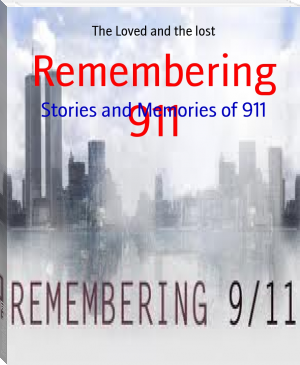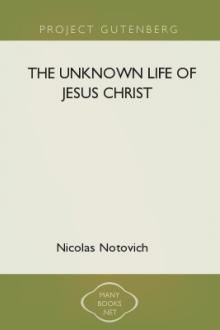The Story of My Life - Helen Keller (top rated ebook readers .txt) 📗

- Author: Helen Keller
- Performer: 0140439153
Book online «The Story of My Life - Helen Keller (top rated ebook readers .txt) 📗». Author Helen Keller
E. Allen, Principal of the Pennsylvania Institution for the Instruction of the Blind, get for me many of the books I need in raised print. Their thoughtfulness has been more of a help and encouragement to me than they can ever know.
Last year, my second year at Radcliffe, I studied English composition, the Bible as English composition, the governments of America and Europe, the Odes of Horace, and Latin comedy. The class in composition was the pleasantest. It was very lively. The lectures were always interesting, vivacious, witty; for the instructor, Mr. Charles Townsend Copeland, more than any one else I have had until this year, brings before you literature in all its original freshness and power. For one short hour you are permitted to drink in the eternal beauty of the old masters without needless interpretation or exposition. You revel in their fine thoughts. You enjoy with all your soul the sweet thunder of the Old Testament, forgetting the existence of Jahweh and Elohim; and you go home feeling that you have had “a glimpse of that perfection in which spirit and form dwell in immortal harmony; truth and beauty bearing a new growth on the ancient stem of time.”
This year is the happiest because I am studying subjects that especially interest me, economics, Elizabethan literature, Shakespeare under Professor George L. Kittredge, and the History of Philosophy under Professor Josiah Royce. Through philosophy one enters with sympathy of comprehension into the traditions of remote ages and other modes of thought, which erewhile seemed alien and without reason.
But college is not the universal Athens I thought it was. There one does not meet the great and the wise face to face; one does not even feel their living touch. They are there, it is true; but they seem mummified. We must extract them from the crannied wall of learning and dissect and analyze them before we can be sure that we have a Milton or an Isaiah, and not merely a clever imitation. Many scholars forget, it seems to me, that our enjoyment of the great works of literature depends more upon the depth of our sympathy than upon our understanding. The trouble is that very few of their laborious explanations stick in the memory. The mind drops them as a branch drops its overripe fruit.
It is possible to know a flower, root and stem and all, and all the processes of growth, and yet to have no appreciation of the flower fresh bathed in heaven’s dew. Again and again I ask impatiently, “Why concern myself with these explanations and hypotheses?” They fly hither and thither in my thought like blind birds beating the air with ineffectual wings. I do not mean to object to a thorough knowledge of the famous works we read. I object only to the interminable comments and bewildering criticisms that teach but one thing: there are as many opinions as there are men. But when a great scholar like Professor Kittredge interprets what the master said, it is “as if new sight were given the blind.” He brings back Shakespeare, the poet.
There are, however, times when I long to sweep away half the things I am expected to learn; for the overtaxed mind cannot enjoy the treasure it has secured at the greatest cost. It is impossible, I think, to read in one day four or five different books in different languages and treating of widely different subjects, and not lose sight of the very ends for which one reads. When one reads hurriedly and nervously, having in mind written tests and examinations, one’s brain becomes encumbered with a lot of choice bric-a-brac for which there seems to be little use. At the present time my mind is so full of heterogeneous matter that I almost despair of ever being able to put it in order. Whenever I enter the region that was the kingdom of my mind I feel like the proverbial bull in the china shop. A thousand odds and ends of knowledge come crashing about my head like hailstones, and when I try to escape them, theme-goblins and college nixies of all sorts pursue me, until I wish—oh, may I be forgiven the wicked wish!—that I might smash the idols I came to worship.
But the examinations are the chief bugbears of my college life.
Although I have faced them many times and cast them down and made them bite the dust, yet they rise again and menace me with pale looks, until like Bob Acres I feel my courage oozing out at my finger ends. The days before these ordeals take place are spent in cramming your mind with mystic formula and indigestible dates—unpalatable diets, until you wish that books and science and you were buried in the depths of the sea.
At last the dreaded hour arrives, and you are a favoured being indeed if you feel prepared, and are able at the right time to call to your standard thoughts that will aid you in that supreme effort. It happens too often that your trumpet call is unheeded.
It is most perplexing and exasperating that just at the moment when you need your memory and a nice sense of discrimination, these faculties take to themselves wings and fly away. The facts you have garnered with such infinite trouble invariably fail you at a pinch.
“Give a brief account of Huss and his work.” Huss? Who was he and what did he do? The name looks strangely familiar. You ransack your budget of historic facts much as you would hunt for a bit of silk in a rag-bag. You are sure it is somewhere in your mind near the top—you saw it there the other day when you were looking up the beginnings of the Reformation. But where is it now? You fish out all manner of odds and ends of knowledge—revolutions, schisms, massacres, systems of government; but Huss—where is he?
You are amazed at all the things you know which are not on the examination paper. In desperation you seize the budget and dump everything out, and there in a corner is your man, serenely brooding on his own private thought, unconscious of the catastrophe which he has brought upon you.
Just then the proctor informs you that the time is up. With a feeling of intense disgust you kick the mass of rubbish into a corner and go home, your head full of revolutionary schemes to abolish the divine right of professors to ask questions without the consent of the questioned.
It comes over me that in the last two or three pages of this chapter I have used figures which will turn the laugh against me.
Ah, here they are—the mixed metaphors mocking and strutting about before me, pointing to the bull in the china shop assailed by hailstones and the bugbears with pale looks, an unanalyzed species! Let them mock on. The words describe so exactly the atmosphere of jostling, tumbling ideas I live in that I will wink at them for once, and put on a deliberate air to say that my ideas of college have changed.
While my days at Radcliffe were still in the future, they were encircled with a halo of romance, which they have lost; but in the transition from romantic to actual I have learned many things I should never have known had I not tried the experiment. One of them is the precious science of patience, which teaches us that we should take our education as we would take a walk in the country, leisurely, our minds hospitably open to impressions of every sort. Such knowledge floods the soul unseen with a soundless tidal wave of deepening thought. “Knowledge is power.”
Rather, knowledge is happiness, because to have knowledge—broad, deep knowledge—is to know true ends from false, and lofty things from low. To know the thoughts and deeds that have marked man’s progress is to feel the great heart-throbs of humanity through the centuries; and if one does not feel in these pulsations a heavenward striving, one must indeed be deaf to the harmonies of life.
I have thus far sketched the events of my life, but I have not shown how much I have depended on books not only for pleasure and for the wisdom they bring to all who read, but also for that knowledge which comes to others through their eyes and their ears. Indeed, books have meant so much more in my education than in that of others, that I shall go back to the time when I began to read.
I read my first connected story in May, 1887, when I was seven years old, and from that day to this I have devoured everything in the shape of a printed page that has come within the reach of my hungry finger tips. As I have said, I did not study regularly during the early years of my education; nor did I read according to rule.
At first I had only a few books in raised print—“readers” for beginners, a collection of stories for children, and a book about the earth called “Our World.” I think that was all; but I read them over and over, until the words were so worn and pressed I could scarcely make them out. Sometimes Miss Sullivan read to me, spelling into my hand little stories and poems that she knew I should understand; but I preferred reading myself to being read to, because I liked to read again and again the things that pleased me.
It was during my first visit to Boston that I really began to read in good earnest. I was permitted to spend a part of each day in the Institution library, and to wander from bookcase to bookcase, and take down whatever book my fingers lighted upon.
And read I did, whether I understood one word in ten or two words on a page. The words themselves fascinated me; but I took no conscious account of what I read. My mind must, however, have been very impressionable at that period, for it retained many words and whole sentences, to the meaning of which I had not the faintest clue; and afterward, when I began to talk and write, these words and sentences would flash out quite naturally, so that my friends wondered at the richness of my vocabulary. I must have read parts of many books (in those early days I think I never read any one book through) and a great deal of poetry in this uncomprehending way, until I discovered “Little Lord Fauntleroy,” which was the first book of any consequence I read understandingly.
One day my teacher found me in a corner of the library poring over the pages of “The Scarlet Letter.” I was then about eight years old. I remember she asked me if I liked little Pearl, and explained some of the words that had puzzled me. Then she told me that she had a beautiful story about a little boy which she was sure I





Comments (0)